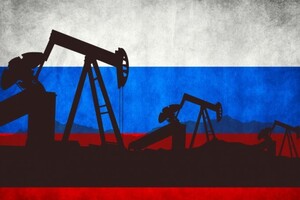According to the Minister, the country has limited energy resources.

Japan cannot stop oil imports at the moment from Russia and join the EU's plans to impose an embargo on Russian oil . This was stated by Japanese Economy Minister Koichi Hagiuda, Kyodo reports.
Japan has limited resources and it is difficult for us to work with the EU right now, “Hagiuda said.
The minister also added. However, according to Hagioud, Japan wants to “move in the same direction” as US President Joe Biden, who recently declared Washington's openness. to new sanctions against Russia and announced plans to discuss the issue with the G7.
Hagiuda noted that in order to reduce energy dependence on Russia, Japan has asked the United States to increase production of liquefied natural gas. Tokyo is considering lending to Japanese companies involved in liquefied natural gas projects in the United States.
Hagioud reportedly met with US Secretary of Energy Jennifer Grenholm on Wednesday. The ministers discussed support for energy security against the background of Russia's invasion of Ukraine. In addition, US Secretary of State Anthony Blinken met with Japan's National Security Adviser Takeo Akiba. Among other things, the parties discussed cooperation on sanctions against Russia.
According to the Japan External Trade Organization, in 2021 Russia accounted for 3.6% of oil imports and 8.8% of liquefied natural gas imports to Japan .
Read also: EU is preparing to impose an embargo on Russian oil imports, but with some exceptions
Earlier, European Commission President Ursula von der Leyen suggested that EU countries impose a ban on crude oil imports from Russia within six months, and oil products – by the end of 2022.
According to her, the sixth package of sanctions of the European Union against Russia will be aimed at banks, including Sberbank and oil. It was also reported that Hungary and Slovakia may be allowed to continue purchasing Russian oil .
These countries are most dependent on Russian supplies. In particular, Hungary has repeatedly stated that it will not support sanctions affecting energy .




